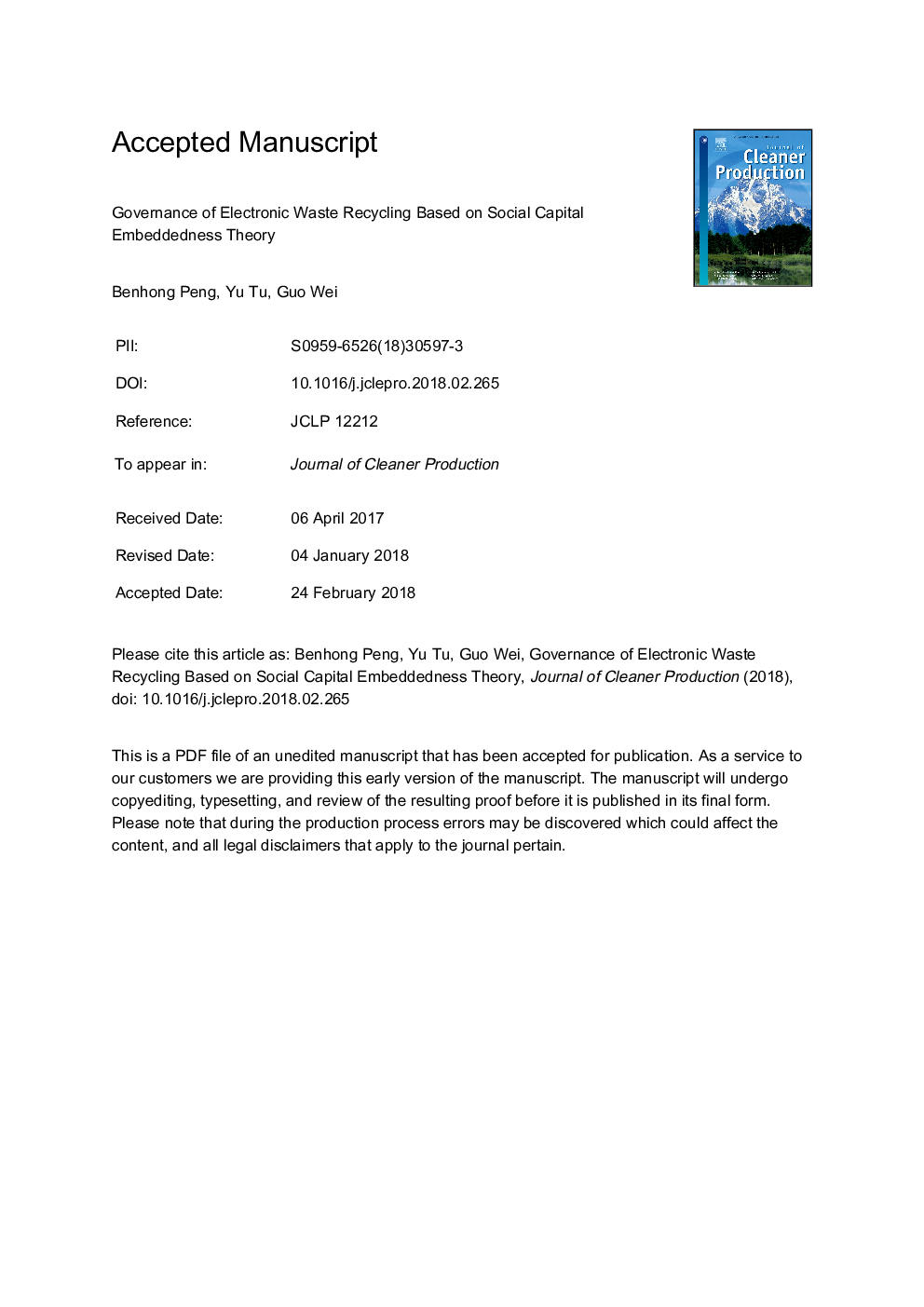| Article ID | Journal | Published Year | Pages | File Type |
|---|---|---|---|---|
| 8095746 | Journal of Cleaner Production | 2018 | 19 Pages |
Abstract
The implementation of EPR systems has posed enterprises with high responsibilities in e-waste governance and management. However, most enterprises have demonstrated a very low interest in EPR systems as expected due to a wide range of barriers, involving high cost, low efficiency on subsidies audit, a lack of effective and efficient collection systems, and low levels of public awareness and participation. We argue that social capital might function as the 'relational glue' underpinning effective supply chain relationships in e-waste management. Drawing upon a survey of 800 enterprises, we utilize structural equation model to examine the relationships between social capital, governance and willingness to participation in e-waste recycling behaviour. Findings show that social capitals have a positively impact on both governance practices and willingness to participation. Nonetheless, the positive effects of cognitive social capital and incentives on willingness to participation are limited due to the lack of coercive powers.
Keywords
Related Topics
Physical Sciences and Engineering
Energy
Renewable Energy, Sustainability and the Environment
Authors
Benhong Peng, Yu Tu, Guo Wei,
